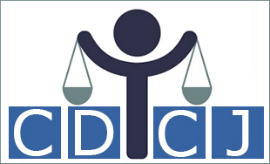A training session on Training Cycle Management and Training Needs Analysis for judicial education institutions took place on 27 and 28 November 2017 in Budva, gathering members of the Programmatic Council and representatives of the secretariat of the Judicial Training Center of Montenegro.
The training focused on presenting methods and techniques for the identification of training needs and for defining appropriate training/learning outcomes. Different training needs assessment methods were presented and discussed – including observation, questionnaires/surveys, interviews, focus groups, annual performance assessments and different ways of performing the training evaluation.
As a result of this training the Representatives of the Judicial Training Center of Montenegro enhanced their knowledge and understanding of the Training Cycle Management methodologies and processes and learnt how to conduct a Training Needs Assessment for judges and prosecutors.
The training was organised in the framework of the Action “Accountability of the Judicial System”, jointly funded by the European Union and the Council of Europe and implemented by the Council of Europe.




